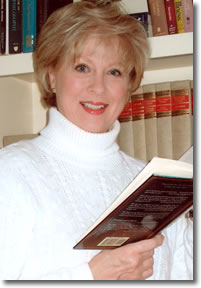Forgiving for Our Own Sake
How is forgiving someone else really more about myself?
 I remember the moment that “I got it” about forgiveness. I had analyzed the
word many times, realizing that forgiveness was not about condoning bad
behavior; rather, it was about forgiving persons, not actions. I had studied the
relevant scripture passages. I had prayed to experience God’s healing
forgiveness for myself. I had prayed to be able to forgive someone who had hurt
me in a life-changing way. I had prayed to BE forgiven by my children for the
times when I was an inept and uninformed mother. I knew that any Christian worth
her salt should search for and strive toward forgiveness.
I remember the moment that “I got it” about forgiveness. I had analyzed the
word many times, realizing that forgiveness was not about condoning bad
behavior; rather, it was about forgiving persons, not actions. I had studied the
relevant scripture passages. I had prayed to experience God’s healing
forgiveness for myself. I had prayed to be able to forgive someone who had hurt
me in a life-changing way. I had prayed to BE forgiven by my children for the
times when I was an inept and uninformed mother. I knew that any Christian worth
her salt should search for and strive toward forgiveness.
However, when I read the words of Frederick Buechner in Wishful Thinking, I realized I had not plumbed the depths of the process. I hadn’t admitted to myself that, at its core, forgiveness is an act of radical self-interest. The truth of his words made my scalp prickle.
Of the Seven Deadly Sins, anger is possibly the most fun. To lick your wounds, to smack your lips over grievances long past, to roll over your tongue the prospect of bitter confrontations still to come, to savor to the last toothsome morsel both the pain you are given and the pain you are giving back—in many ways it is a feast fit for a king. The chief drawback is that what you are wolfing down is yourself. The skeleton at the feast is you.
My heart stood still at the power of the words. My reliable “truth bell” rang in my head. I realized that the saving grace of God’s forgiveness was a free gift, yes, but one that required our center of consent, our voluntary participation, our vulnerable openness.
Something inside me raced ahead to anticipate the release—the reality of the biblical assertion that “the truth shall set you free.” I began to sense the value of accepting things as they were and as they had happened. I saw the bitter cost of unforgiveness: nothing short of the utter erosion of one’s life. And, in my basic selfishness, I wanted no part of it.
Which set me thinking about something else… Perhaps God’s gift of self-preservation, of self-interest could be experienced as a benevolent guide instead of an ego trip (the negative tag of our self-judgment!). Perhaps God had created us in such a way that to forgive another is to break the chains that bind US, to free ourselves from the prison which limits our own freedom. Perhaps C.S. Lewis had it right when he wrote that “… the gate to hell is locked from the inside.”
The invitation to forgive reminds us that we hold the key.
Copyright ©2004 Linda Douty